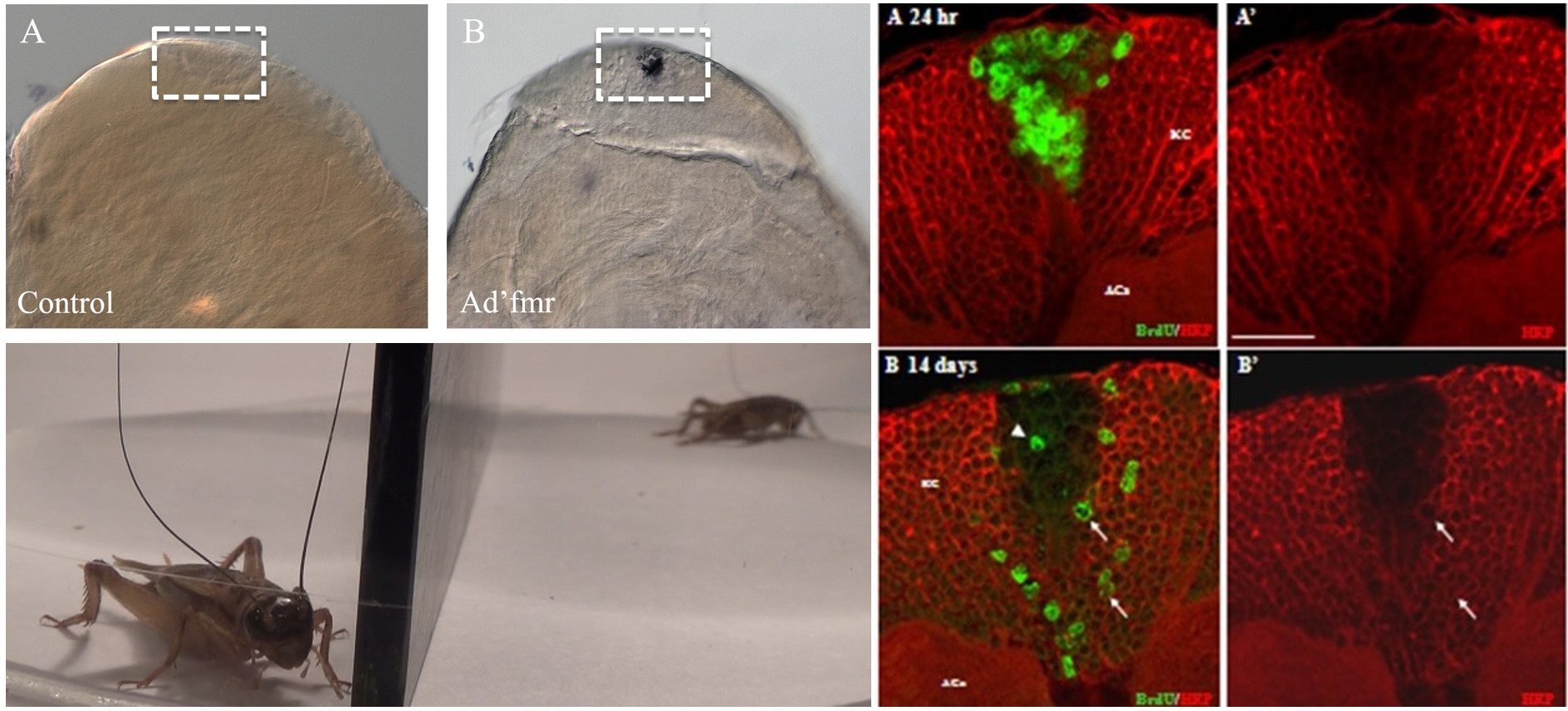Fragile X syndrome is the most common form of inherited mental retardation caused by a mutation in the regulatory region of the gene. This mutation increases the number of CGG repeats, which leads to hyper-methylation and transcriptional silencing, and ultimately the loss of the gene product Fragile X Mental Retardation Protein (FMRP). This deficit leads to small, immature neuronal spines that lack synapses, thereby reducing synaptic plasticity. Mutations in Fragile X can also impact the function of neural stem cells, causing learning deficits and decreased adult neurogenesis. Our goal is to determine how FMRP regulates adult neurogenesis using the cricket as a simple model. We are using RNA interference to reduce the expression of Fragile X and examining how this impacts adult neurogenesis, the ultrastructure of the niche, social behavior, immune function, and learning and memory.




